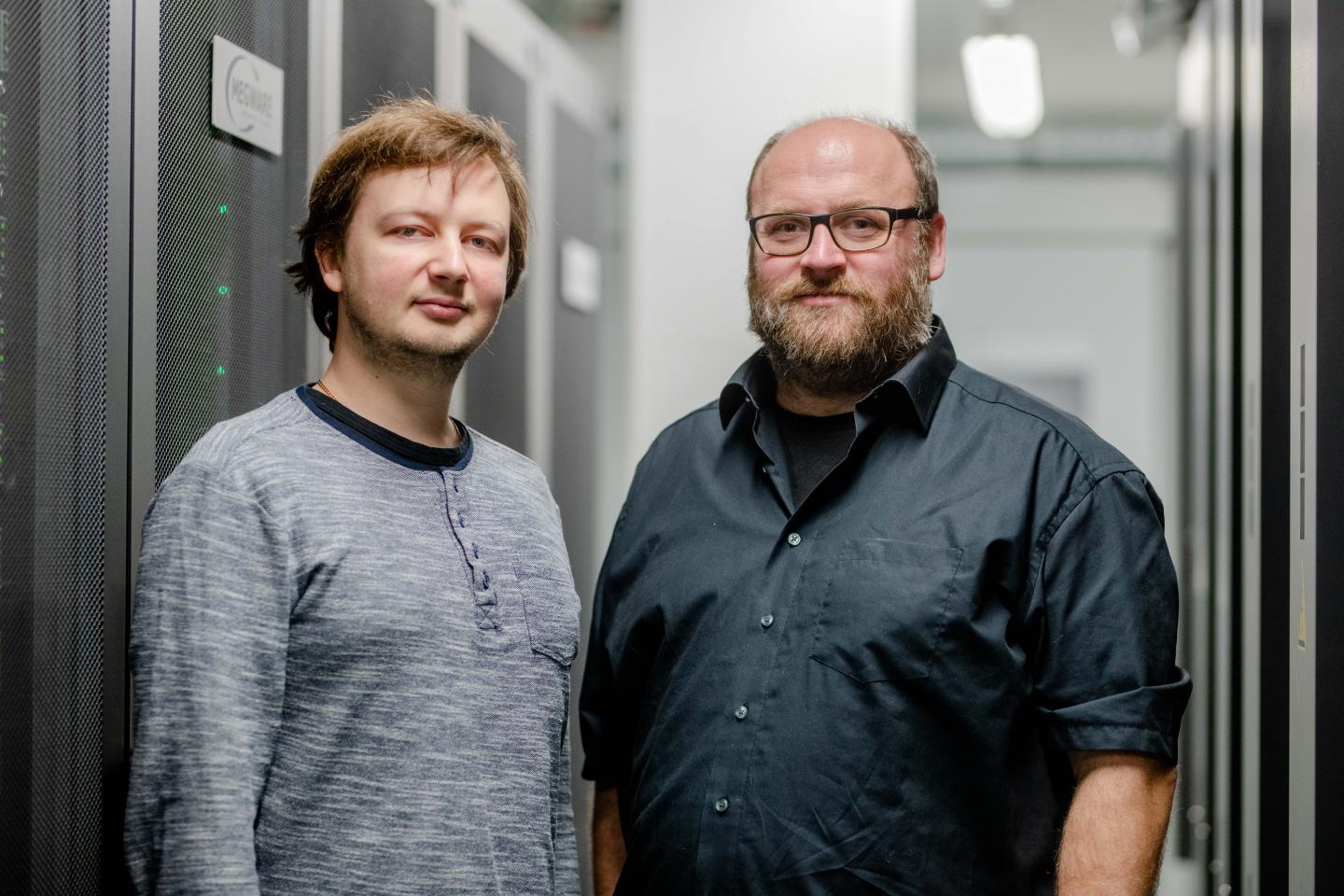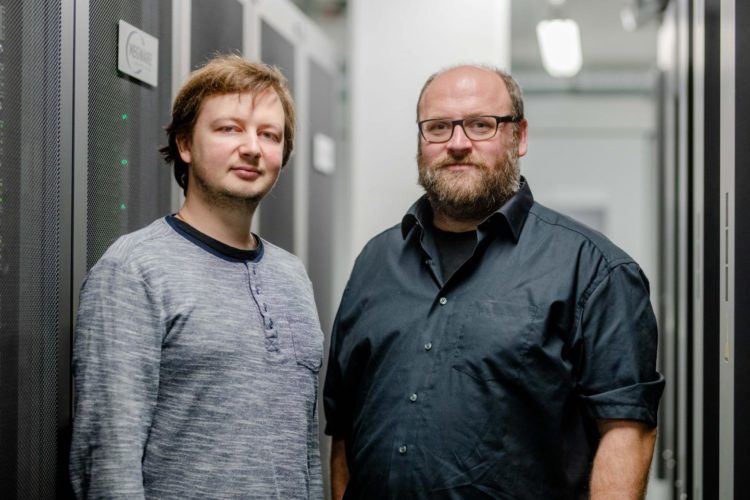Material research

Credit: RUB, Marquard
With their algorithm for material-property prediction, Dr. Yury Lysogorskiy and Dr. Thomas Hammerschmidt of the Interdisciplinary Centre for Advanced Materials Simulation Icams of Ruhr-Universität Bochum (RUB) won the second place in an international competition on machine learning. The secret of their success was the combination of data analytics with physical models and with properties of the chemical elements that potential materials for solar cells and touchscreens are made of. The algorithm from Bochum, as well as the first-place solution from Yokohama, Japan and the third-place solution from London, Great Britain have been published in the journal NPJ Computational Materials of 18 November 2019.
Crystal-structure prediction for materials
The applied methods were originally developed for the simulation of metallic alloys. For this competition, the researchers adapted the methods for the prediction of the structural stability and the optical properties of transparent conductors. “These materials that are used for example in touchscreens are composed of the chemical elements Aluminium, Gallium, Indium and oxygen,” explains Thomas Hammerschmidt. By variation of the chemical composition the material properties can be tuned for the technological application.
Assess general suitability
For the competition that was released by the European Centre of Excellence Nomad and the internet-platform for machine-learning competitions Kaggle, a data set of results from quantum-mechanical calculations was made available. A second set of data was kept secret. The algorithms should be trained on the first set of data to predict the second set as accurately as possible. “This technological competition was about the performance and the comparability of different solution approaches,” say Yury Lysogorskiy and Thomas Hammerschmidt.
Approach is transferable
„There is a variety of different approaches to perform specific predictions for certain chemical compositions,” the researchers explain. “We were interested how transferable our approach is to different material classes and problem cases”. The Bochum solution incorporated results of previous works at Icams, particularly physically motivated descriptors of the local atomic environment of the atoms in the crystal lattice.
###
Funding
The organization of the competition was supported by funding from Horizon 2020 program of the European Union (Funding number 676580), the organisation Molecular Simulations from First Principles and the Alexander von Humboldt Foundation.
Original publication
Christopher Sutton, Luca M. Ghiringhelli, Takenori Yamamoto, Yury Lysogorskiy, Lars Blumenthal, Thomas Hammerschmidt, Jacek R. Golebiowski, Xiangyue Liu, Angelo Ziletti, Matthias Scheffler: Crowd-sourcing materials-science challenges with the NOMAD 2018 Kaggle competition, in: NPJ Computational Materials, 2019, DOI: 10.1038/s41524-019-0239-3: https:/
Press contact
Dr. Thomas Hammerschmidt
Interdisciplinary Centre for Advanced Materials Simulation
Ruhr-Universität Bochum
Germany
Phone: +49 234 32 29375
Email: [email protected]
Links
Website of the competition: https:/
Media Contact
Dr. Thomas Hammerschmidt
[email protected]
49-234-322-9375
Original Source
https:/
Related Journal Article
http://dx.





